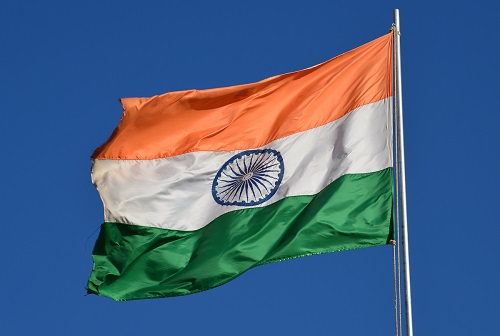India Investing $60 Billion on National Gas Grid by 2024
NEW DELHI (Reuters) - India, one of the world's largest consumers of oil and coal, is investing $60 billion to build a national gas grid and import terminals by 2024 in a bid to cut its carbon emissions, the oil minister said on Sunday.

India has struggled to boost its use of gas, which produces less greenhouse gas emissions than coal and oil, because many industries and towns are not linked to the gas pipeline network.
Gas consumption growth was running at 11% in 2010 but growth slid to just 2.5% in the financial year 2018/19.
Oil Minister Dharmendra Pradhan told reporters at India Energy Forum by Ceraweek that companies were investing $60 billion in the network and building new gas import facilities to link all states by mid-2024, when the government's term ends.
"I am not talking about potential investment. This number relates to the project that are under execution," he said.
Prime Minister Narendra Modi has previously set a target to more than double the share of gas in India's energy mix to 15% by 2030.
India's biggest gas utility Gail Ltd has said it was close to completing the 2,660 km (1,660 miles) Urja Ganga pipeline project, connecting the eastern states of Bihar, West Bengal, Jharkhand and Odisha. The pipeline will have capacity for 16 million standard cubic metres per day (mscmd) of gas.
"The Urja Ganga project ... will be ready by the end of 2020," Pradhan said on the conference sidelines.
India's overall gas consumption is about 166 mscmd.
The minister said the government had started building the northeast gas grid to connect eight states in northeastern India, a region bordering Bhutan, Myanmar, Bangladesh and China. He said the grid would be ready by 2023.
He added that, before the end of government's current term, "India will be connected by a pipeline ring that will help transport gas from any corner of India to a demand centre."
Most of India's liquefied natural gas (LNG) import terminals are in the west, making it difficult for the industry in the east and elsewhere to secure regular gas supplies.
Related News
Related News

- Kinder Morgan Proposes 290-Mile Gas Pipeline Expansion Spanning Three States
- Enbridge Plans 86-Mile Pipeline Expansion, Bringing 850 Workers to Northern B.C.
- Intensity, Rainbow Energy to Build 344-Mile Gas Pipeline Across North Dakota
- U.S. Moves to Block Enterprise Products’ Exports to China Over Security Risk
- Court Ruling Allows MVP’s $500 Million Southgate Pipeline Extension to Proceed
- U.S. Pipeline Expansion to Add 99 Bcf/d, Mostly for LNG Export, Report Finds
- A Systematic Approach To Ensuring Pipeline Integrity
- 275-Mile Texas-to-Oklahoma Gas Pipeline Enters Open Season
- LNG Canada Start-Up Fails to Lift Gas Prices Amid Supply Glut
- TC Energy’s North Baja Pipeline Expansion Brings Mexico Closer to LNG Exports




Comments